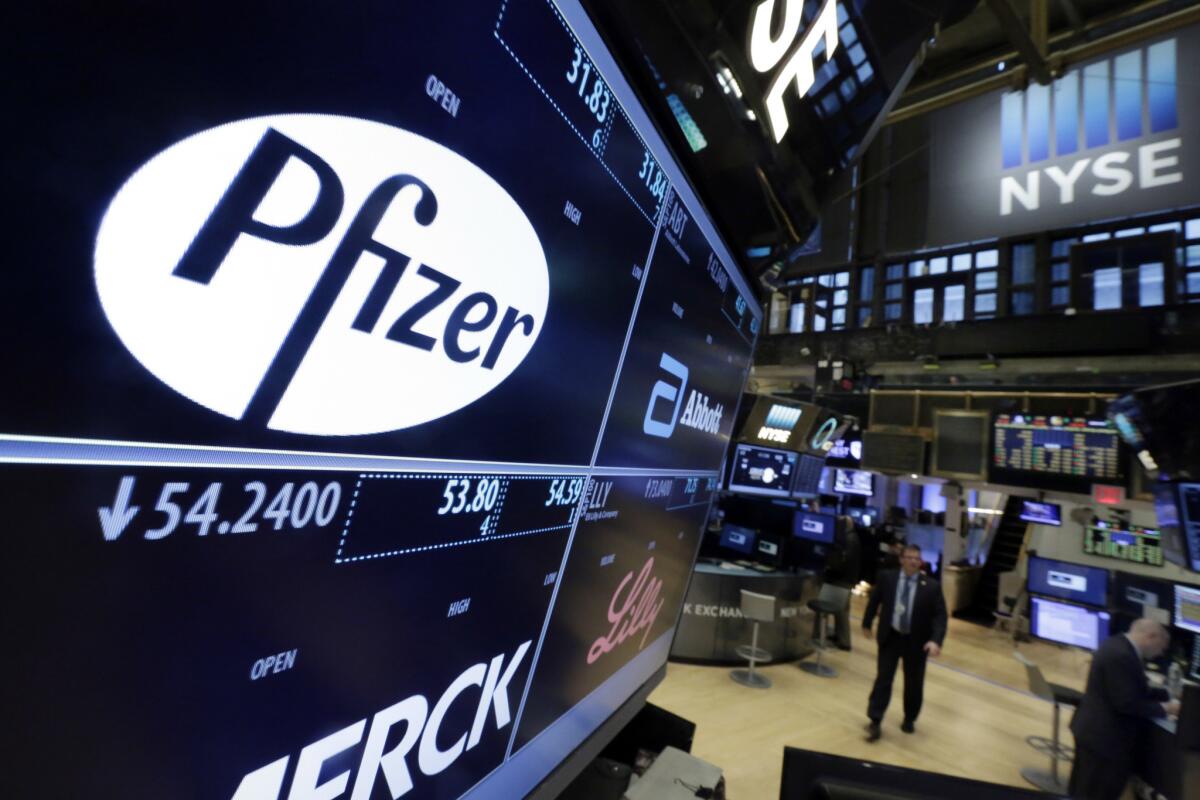Pfizer says it won’t allow its drugs to be used in executions: Here’s what that means

Pfizer’s decision to block the use of its drugs in lethal injections means that all federally approved pharmaceutical companies whose medications could be used for executions have put them off limits.
“Pfizer makes its products to enhance and save the lives of the patients we serve. Consistent with these values, Pfizer strongly objects to the use of its products as lethal injections for capital punishment,” the company said in a statement on its website Friday.
The company’s announcement has limited immediate impact. Its action is an enhancement of a previous policy that follows Pfizer’s $15.23-billion purchase of Lake Forest, Ill.-based Hospira Inc. last year. Hospira had previously prohibited the use of its drugs in capital punishment, as have several other drugmakers.
See more of our top stories on Facebook >>
Pfizer shares closed even Friday at $33.19.
The development means the approximately 25 FDA-approved companies worldwide able to manufacture drugs used in executions have now blocked the use of the drugs, according to Reprieve, a New York-based human rights organization opposed to the death penalty.
“Pfizer’s actions cement the pharmaceutical industry’s opposition to the misuse of medicines,” Maya Foa, Reprieve director, said in a statement.
------------
For the record
May 14, 3:35 p.m.: An earlier version of this article misspelled the last name of the Reprieve director. Her name is Maya Foa, not Maya Foia.
------------
Pfizer’s announcement was unlikely to have much effect on executions, which have slowed in recent years as drugmakers’ prohibition on the drugs took effect.
NEWSLETTER: Get the day’s top headlines from Times Editor Davan Maharaj >>
However, as recently as last year, records showed that labels of Arkansas execution drugs appeared to indicate that the state’s potassium chloride, which stops the heart, was made by Hospira. Pfizer spokeswoman Rachel Hooper said the company couldn’t speculate on the consequences of its decision.
Ohio, which last executed an inmate in January 2014, has repeatedly pushed back executions while it looks for drugs. It now has more than two dozen inmates with firm execution dates, but no drugs to use.
Some remaining death penalty states have been using compounded versions of drugs that fall outside of FDA approval.
Texas, with the country’s busiest death chamber, obtains its pentobarbital for lethal injections from a supplier the state identifies only as a licensed compounding pharmacy. A law that took effect last year keeps the identity of the drug provider confidential. The state has carried out six executions so far in 2016. At least eight are scheduled for the coming months, including two in June.
Texas is fighting a lawsuit trying to force it to identify its drugmakers.
Similar lawsuits about whether states must identify their providers have been argued in states including Georgia, Arkansas and Missouri.
There have been 14 executions in five U.S. states so far in 2016: six in Texas, five in Georgia and one each in Alabama, Florida and Missouri. Last year, there were 28 in six states.
Some states have passed laws allowing older methods of execution if drugs aren’t available. Last year, Utah approved the use of firing squads, while Oklahoma became the first state to approve nitrogen gas for executions if lethal injection drugs become unavailable or are deemed unconstitutional.
In 2014, Tennessee passed a law allowing the use of the electric chair if lethal drugs can’t be found. Virginia is debating a similar bill.
The seven drugs affected by Pfizer’s policy are pancuronium bromide, potassium chloride, propofol, midazolam, hydromorphone, rocuronium bromide and vecuronium bromide.
ALSO
Mom and 7 adult children win $429.6-million Powerball jackpot
Joe Arpaio, ‘America’s toughest sheriff,’ found in contempt of court in racial profiling case
New auction for George Zimmerman’s gun that killed Trayvon Martin gets bids over $65 million
More to Read
Sign up for Essential California
The most important California stories and recommendations in your inbox every morning.
You may occasionally receive promotional content from the Los Angeles Times.









